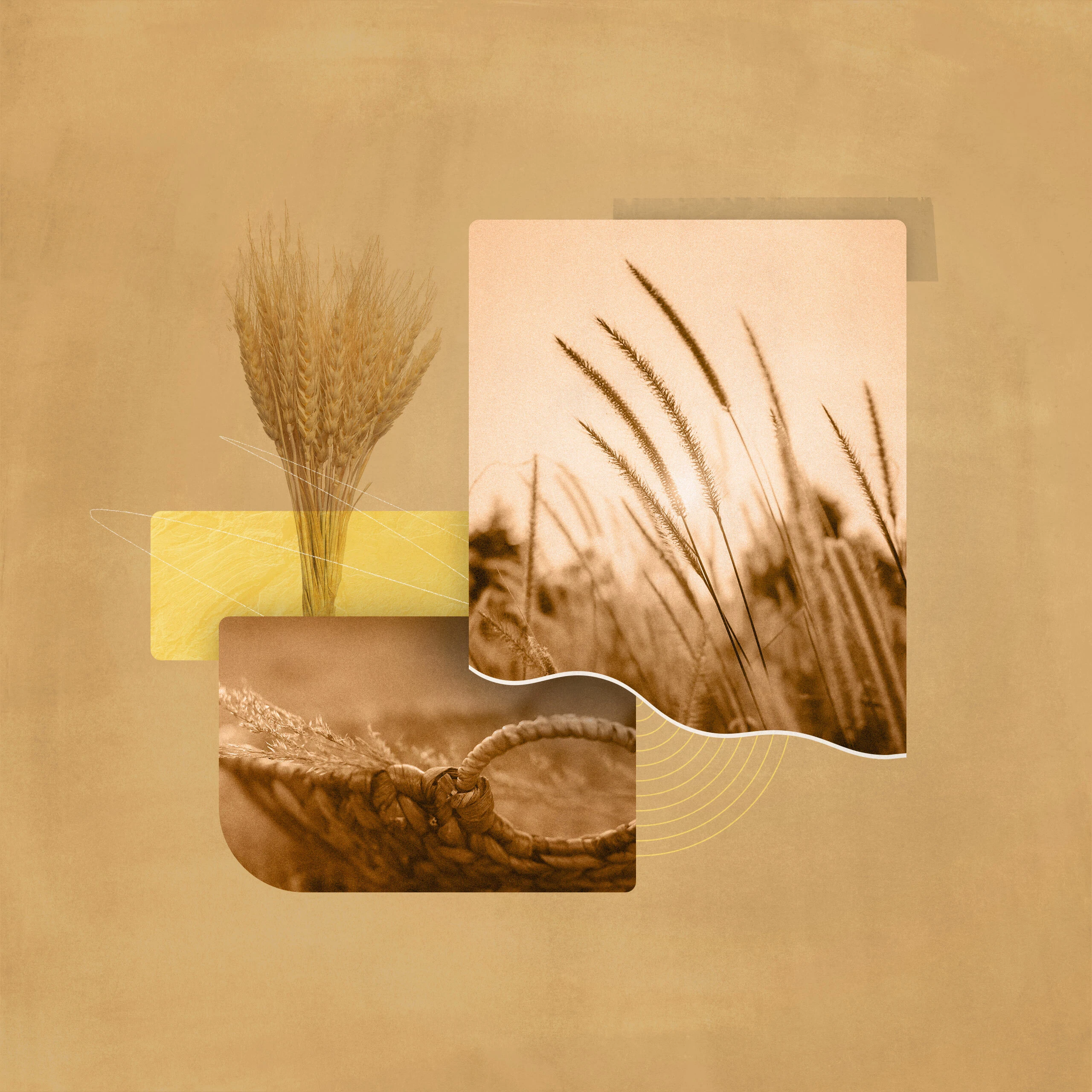What Does Matthew 28:18–20 Mean?

And Jesus came and said to them, “All authority in heaven and on earth has been given to me. Go therefore and make disciples of all nations, baptizing them in the name of the Father and of the Son and of the Holy Spirit, teaching them to observe all that I have commanded you. And behold, I am with you always, to the end of the age.” (Matt. 28:18–20)
It’s easy to admire the grit and determination of farmers. My great-grandfather and grandfather were farmers. I loved riding in the combine with my grandfather, watching the vast fields of corn being gathered in. As I got older, I realized that not every day as a farmer was like that day. I only got to enjoy the harvest day. For months before the harvest, the farmers till, sow, and wait. There’s a long wait between the plowing and the harvesting, and there are many environmental elements that threaten to derail the healthy growth of those crops in the months of waiting. Although farming has changed over millennia, one thing has remained: there’s always a time of waiting. Imagine, then, the surprise of an Israelite farmer during the eighth-century BC when he read that a day was coming when there would be no time of waiting between plowing and reaping.
In Amos 9, the Lord revealed to the prophet that a day would come when the nations would call on His name. This promise was no different from the Lord’s promise to Abraham that he would be “the father of a multitude of nations” and that through him “shall all the nations of the earth be blessed”; or to Isaac that he would “become a company of peoples”; or to Jacob that “a company of nations shall come from you” (Gen. 17:5; 22:18; 28:3; 35:11). In the day Amos speaks of, the crop would be so abundant that the harvester wouldn’t have enough time to collect the harvest before the plowman was already tilling the ground for the next batch of crops—a farmer’s dream (Amos 9:13)! But when will this day be?
According to Amos 9, this day of abundant harvesting and blessing with God in the promised land would come when the booth of David is raised up (Amos 9:11). The house of David was in ruins at the time of Amos’ prophecy, but when the One who will rebuild the booth of David—the Messiah—appears, He will restore true Israel under God’s rule and bring the gentiles into His fold. A righteous descendent of David needed to repair the harvesting fields of Israel.
Aware of the prophecy of Amos, it is no wonder that many faithful Israelites in the first century were on the lookout for the Son of David (e.g., Luke 2:25). Around that time, a Judean man named John began preaching about the kingdom of God (Matt. 3:1–2), and about One coming after him who would “gather his wheat into the barn” and burn the chaff (Matt. 3:12). The One John spoke of—Jesus—seemed to give some Israelites hope. Jesus’ life and ministry harkened back to the glory days of Israel when the house of David reigned. Could He be the one to “restore the kingdom to Israel?” (Acts 1:6). The Gospel writers leave no doubt that Jesus Christ is the long-awaited “Son of David” (see Matt. 1:1; 9:27; 12:23; 15:22; 20:30–31; 21:9, 15; Luke 1:32; 18:38).
Further, Jesus situated Himself in the “agricultural” mission of God. He said that His work was to accomplish the will of the Father (John 4:34) and to gather the wheat into the Father’s barn (Matt. 13:30). He told His disciples that the “harvest is plentiful” (Matt. 9:37) and that “the fields are white for harvest” (John 4:35). He fulfilled the Lord’s ancient mission to gather His wheat into the barn. This is good news.
But there’s a problem. The One who was to restore Israel was delivered over to crucifixion. He “breathed his last” (Luke 23:46) without completing the harvest. It appeared that the booth of David had fallen once more. The disciples expressed their shattered hope: “We had hoped that he was the one to redeem Israel” (Luke 24:21). But the risen Lord Jesus explained to the despairing disciples that the Old Testament Scriptures foretold not only that the Christ would suffer, but also that He would rise from the dead on the third day and “that repentance for the forgiveness of sins should be proclaimed in his name to all nations” (Luke 24:46–47, emphasis added). The booth of David had indeed been raised up, and the nations would begin calling on the name of Jesus. This is good news.
The impetus for the faithful proclamation of the gospel in evangelism and missions is this: the Lord Jesus is on His throne, and He’s claiming His heritage through His church.
But there’s another problem at this point. He’s leaving and returning to the Father, as He told them (John 16:5–7). “While he blessed them, he parted from them and was carried up into heaven” (Luke 24:51). How, then, is He going to gather His harvest if He’s not even here? Before His ascension, however, He comforts His disciples and He gives to them their marching orders, customarily termed the “Great Commission”: “All authority in heaven and on earth has been given to me. Go therefore and make disciples of all nations, baptizing them in the name of the Father and of the Son and of the Holy Spirit, teaching them to observe all that I have commanded you. And behold, I am with you always, to the end of the age” (Matt. 28:18–20). Now we start to see how the risen and ascended Messiah is gathering His harvest. He is commissioning His people to go—under His comprehensive authority—to proclaim in His name the forgiveness of sins. This is what the Old Testament had foretold. The Christ must suffer, die, and rise again, and forgiveness of sins will be proclaimed in His name to all nations.
The ascension doesn’t mark the Harvester’s retirement. Far from it. The Great Commission is the answer to how the Lord is going to gather His wheat into His barn. It shows us the plan of God in fuller form now that the Messiah has accomplished the work of redemption. It marks the inauguration of a new epoch in redemptive history wherein the risen Christ calls His church to the glorious task of being witnesses to His death, resurrection, and ascension to all the nations. It’s the Spirit-empowered, Christ-commanded assignment of the church until the consummation of the kingdom, the end of the age, the full ingathering of the grain into the barn. The Great Commission is the means by which the Son-King of Psalm 2 is claiming His inheritance.
We might say that the Great Commission fulfills the promise of Psalm 2. In the ascension, the Lord has set His Son—His King—atop Mount Zion, His holy hill (Ps. 2:6). As the risen and ascended King, the Lord Jesus is gathering His heritage—the nations of the earth (Ps. 2:8). How is He doing this? Through the work of the Helper—the Holy Spirit—who indwells and empowers His people to proclaim His Word to the nations. Seen in this light, the impetus for the faithful proclamation of the gospel in evangelism and missions is this: the Lord Jesus is on His throne, and He’s claiming His heritage through His church.
The Great Commission, then, isn’t intended for the Apostles alone, as some have argued. The Great Commission is the glorious mission of the church, which is built on the foundation of the Apostles and prophets (Eph. 2:20). Another common misconception is that the Great Commission is synonymous with evangelism. But look at the scope of Jesus’ marching orders: go, make disciples, baptize in the triune name, teach to observe and keep all that Christ commanded, and be mindful of His authority and presence. This sounds a lot like the ordinary work of the church—and that’s precisely the point.
The Great Commission is indeed great, but it’s also very ordinary. As we worship the Lord, attend to the means of grace (Word, sacraments, prayer), fellowship with the saints, faithfully proclaim the gospel to our neighbors in ordinary life, and live before the face and presence of God, we are fulfilling the Great Commission. Yes, the church supports and sends missionaries to areas where the name of Christ has not been proclaimed, but this too is the ordinary work of the church, not a separate endeavor.
The church has come to Mount Zion, the “heavenly Jerusalem” (Heb. 12:22), where the Messiah reigns as King. Until the full ingathering of the harvest and the consummation of His Kingdom at His glorious return, the church continues to fulfill the Great Commission, laboring in His field and reaping His harvest (Matt. 9:38). We’re unprofitable servants who get to take part in the Lord gathering the wheat into His barn. That’s the telos (ultimate end) of the Great Commission: to bring people into the full enjoyment of God, that they might fulfill their chief end to glorify God and to enjoy Him forever (Westminster Shorter Catechism 1). We go out—whether it’s down the street or across the world—as authorized laborers in Christ’s field, in order to bring people in—whether it’s a faithful church in Florida or Madagascar—for the Father is seeking true worshipers (John 4:23). This is the work of the church “to the end of the age,” and it’s the work of every Christian. Whether you’re a stay-at-home mom, missionary, or a government emissary, if you’re in Christ by faith, you’re a laborer in His field. The promise and task of the Great Commission is for you.
Take heart. The fields are white for harvest and the Great Harvester is with you always.


